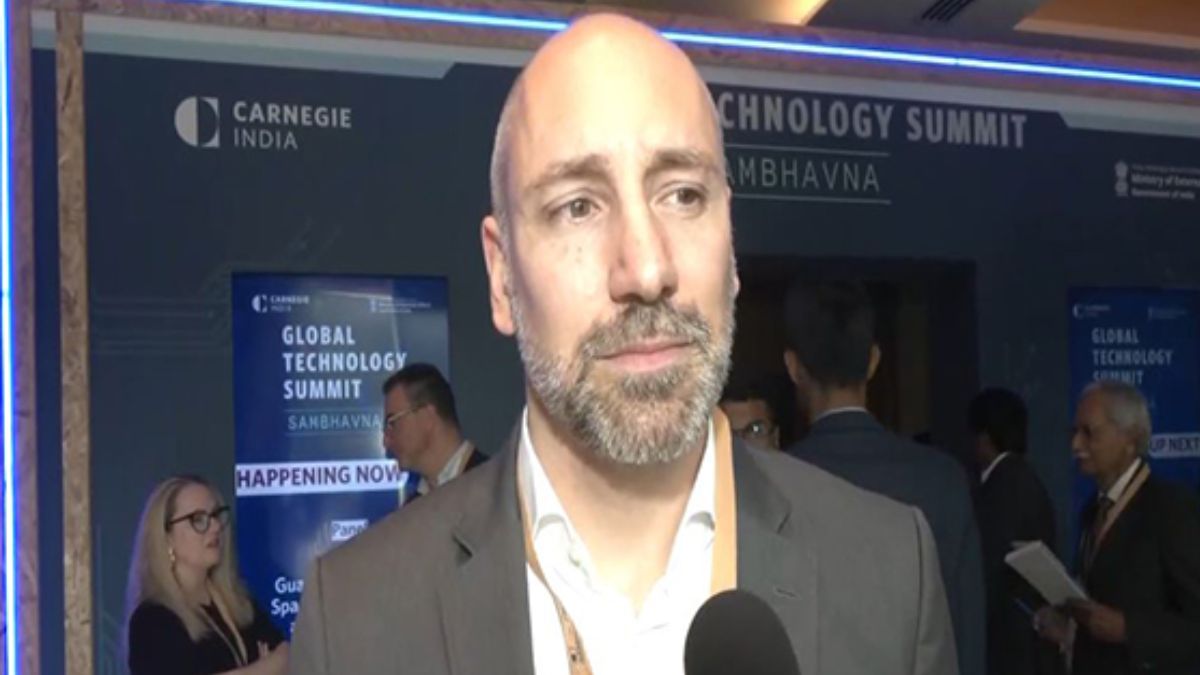
New Delhi: Evan A. Feigenbaum, Vice President for studies at the Carnegie Endowment for International Peace, believes that the financial markets are pressuring the US administration to change course.
Talking to ANI on the sidelines of Carnegie Global Technology Summit, Feigenbaum said US administration can’t be completely oblivious of what’s happening in terms of “faith and confidence” in American stewardship.
“I think a lot of people think this is now between the US and China, because the president has rolled back his initial tariffs, mostly on everybody except for China, but the reality is because of what’s happening in the bond market and also to the US dollar, where traditionally safe assets that are branded to the United States are trading as if they’re risky assets, I think there’s a lot of pressure from the markets on the administration to change course,” he said.
The tariff war between the US and China, according to Feigenbaum, is going to be quite catastrophic for both countries.
He asserted that for the United States, it could mean supply shortages and inflation.
“For China, it could mean a lot of pressure on the export sector at a time when China actually has a lot of headwinds that it’s facing economically and also potentially some kind of deflation,” he added.
“I think for the rest of the world, there’s just going to be a lot of disruption to supply chains, but there’s also going to be a lot of turbulence where there’s just uncertainty about what direction the global system is heading in. So it won’t be easy for countries to plan longer term on a policy basis, and for corporates, it will be very, very difficult because to make longer term investments, you need to know what kind of tariff environment you’re going to face four years from now. Nobody will know that, so there’s going to be a lot of stasis and freezing up, I think, in supply chains in the markets,” he added.
He added that some of the fallout will bleed into India as well. He suggested that India diversify its supply chains.
“India obviously needs to diversify because it needs the broadest array of partners in every direction on the compass. That’s a good strategy,” he noted.
Bjorn Conrad, CEO and Founder of Sinolytics and expert on China affairs, told ANI that China has been preparing for this conflict for a long time.
“China has not been blindsided by this conflict. They’ve been preparing for this conflict for a long, long time. They have their instruments ready. They have their playbook ready, and they’re playing it as they have planned, and they have serious cards to play also to inflict hurt on the US,” Conrad told ANI.
“They have the ability to pain US companies. They have the ability to restrict very critical minerals, raw materials. They definitely have cards to play also to fight back against the US tariffs,” Conrad added.
He thinks China will restrict critical raw materials, especially heavy rare earth elements, high-tech, semiconductors, optics, and lasers.
“So China has a very strong dominance in these elements and a strong ability to also kind of inflict difficulties on other markets and especially on the US by restricting the outflow of these elements,” he argued.
In that context, he said the US is making every effort to close these gaps and reduce its dependence on rare earths.
“The US is starting to mine their own rare earth on US territory, but all of that takes time, and it’s also limited in scope,” he noted.
He said that India is quite worried about the diversion of trade flows from China into India.
“I think India is now primarily thinking about how to make sure that they (Chinese products) are not flooded by dumping goods, and I think that’s going to be the first concern for India,” Conrad argued.
Rosa Balfour, Director, Carnegie Europe, talking to ANI, said most of the countries who have faced tariffs are looking at finding alternative markets.
“So it’s not entirely clear where the US is going in all this, but we are seeing that other countries are actually working towards finding alternative ways around this,” Balfour noted.
Carnegie Europe Director Rosa Balfour said that the European Union has the tools to respond to the trade war and has been preparing the tool box for several months. She said that Europe could reach out to other nations if there was a trade war between the US and China.




